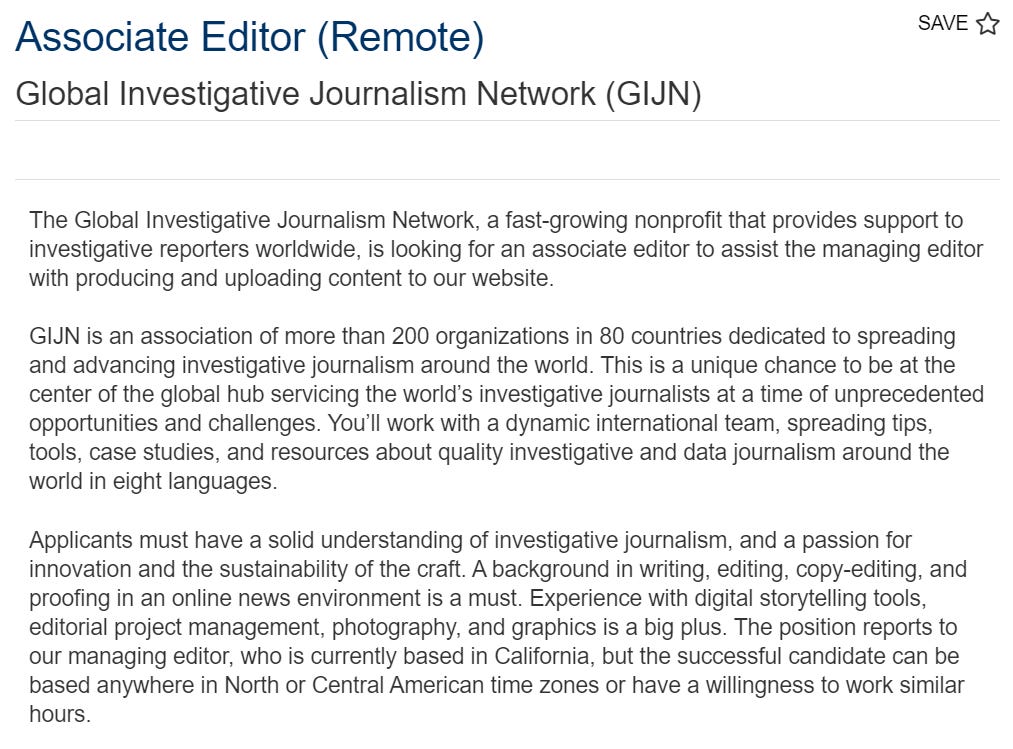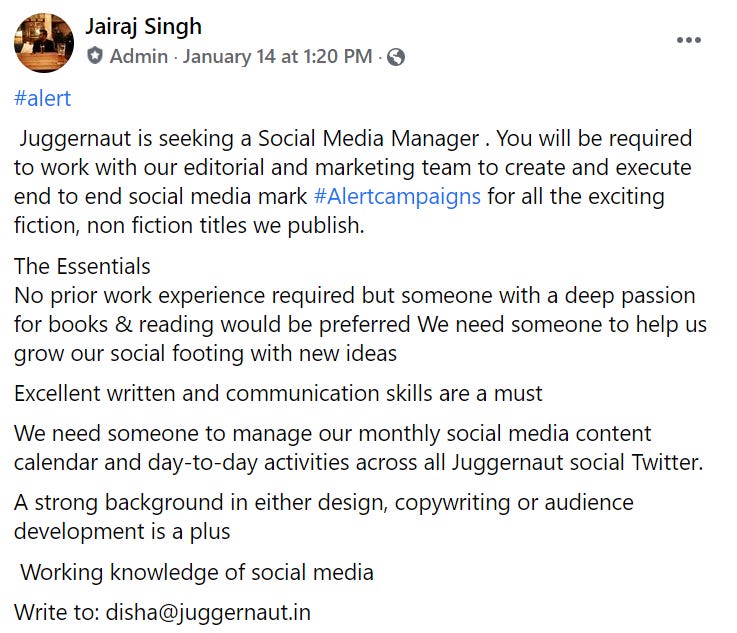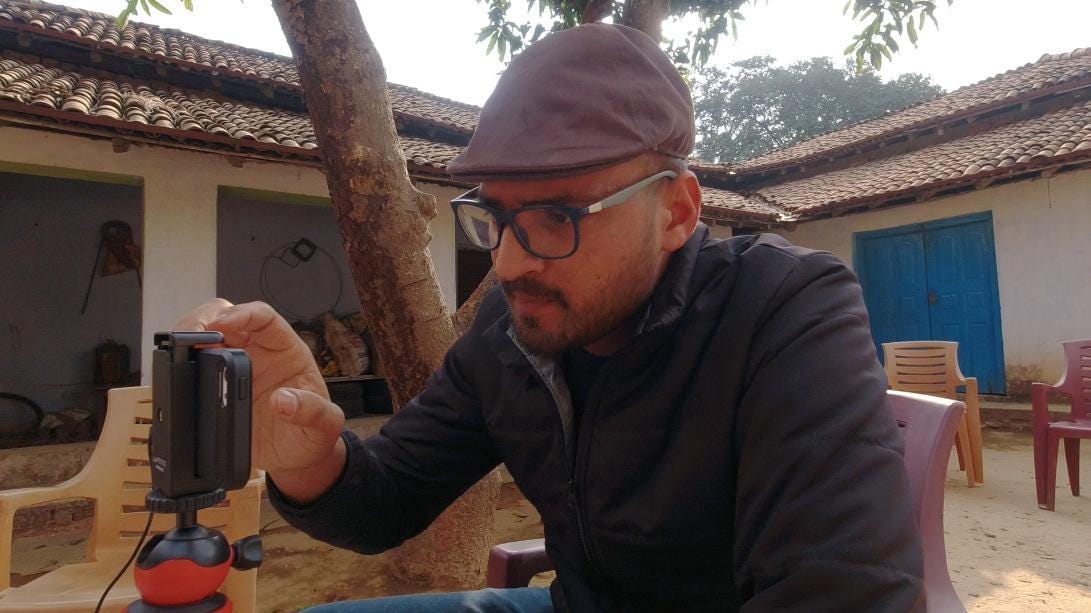An IIMC alumnus, Rohit Upadhyay graduated in 2015 and worked with some of India's leading media houses such as AajTak, Navbharat Times, The Times of India, India Today and News 18. In March 2019, Rohit started On The Ground with Rohit Upadhyay, his independent journalism YouTube channel. With 87.5k+ subscribers, and more than 100 published stories, Rohit has a robust repertoire of reports from different states, discussions on laws, rural reports, explainer videos and more.
"I roam different states on my own and report from various places to the best of my capabilities," Rohit tells us. We caught up with him to understand how he manages his channel and what is his vision for the future.
Q. Is there a revenue model in place around your channel? Can other journalists contribute too? Rohit: I have pondered over various ways of setting up a revenue model for my channel by way of collaboration and in other ways, but so far there is nothing in place. Whatever earnings happen, they happen by means of YouTube monetisation, and I am completely reliant on my channel for my sustenance. If someone is keen on telling their stories through my channel, I welcome them. I cannot guarantee if I'd be able to pay anyone anything though. But whatever earnings come, we can figure out how to help each other out in the best way possible.
Q. You have a great follower-base. What are some quick tips you'd like to share with those aspiring to start their own YouTube channel? Rohit: For all YouTube aspirants, I always tell them that they should be clear about WHY they want to start a channel. Because ultimately, you should enjoy your work and not get demotivated even if the videos don't work, or the views don't come in. One must be very clear about the kind of stories they want to do, and their target audience.
There are many technical aspects on YouTube—keywords, SEO, thumbnails, which are very important but one must understand that new channels are in competition with big agencies and companies who've been in business for a long time. And so sole reliance on technical knowhow is not a sustainable way of moving forward. What's critical is if you can stand with your story even if it only has 10 views. If your work is good, it will definitely pick up.
Q. Tell us about that one time you felt extremely satisfied through this journey of building this channel? Any particular story? Any special moment? Rohit: Absolutely. It always happens. If you're the one doing everything and have the freedom to tell your stories in the way that you want to tell them, it feels great. But some moments stand out and make me feel happy that I started this channel. One such instance is when I had travelled to J&K when Article 370 was abrogated. I reported from there and published the story on my YouTube channel which was shared by many prominent pages and people. But that video has a lot of comments by kids which is very heartening. People got emotional and appreciated how honest my report was. People from the affected region were elated that someone has conveyed their story in a proper manner.
Q. What kind of stories do you do? What more would you want to do with this channel? Rohit: Every such issue that affects the life of a common person, I want to highlight them through my platform. I am also inclined to cover environmental issues and highlight the technologies that are working to make the environment better. For the future, I'd like to explore women issues and topics related to education and health of children. I am also keen on picking up human interest stories that get buried between bigger debates and discussions.
Watch the interview here:
Subscribe to Rohit's YouTube channel for more updates. He is one of our fellows from our ongoing Mobile Journalism Fellowship.

January 2021 at In Old News is turning out to be an increasingly productive month with the fellows sending their MOJO video projects. We will be helping them edit and share their stories over the next few weeks.
To mark the beginning of this process we’re sharing our fellow Mayank Jain's video report published in The Patriot.
Mayank completed his report from Madhya Pradesh where he spoke to the victims of bondage debt—considered a form of modern slavery—on the prevalence of the practice in the Guna region of the state.

Global Investigative Journalism Network is hiring:



ABOUT THIS NEWSLETTER
This newsletter is an attempt to keep up and share all the latest and greatest stories in media and how they get done. Read about it here: About In Old News-Letter. And if you were forwarded this newsletter, here’s how you can sign up to get the latest editions as they come out!

